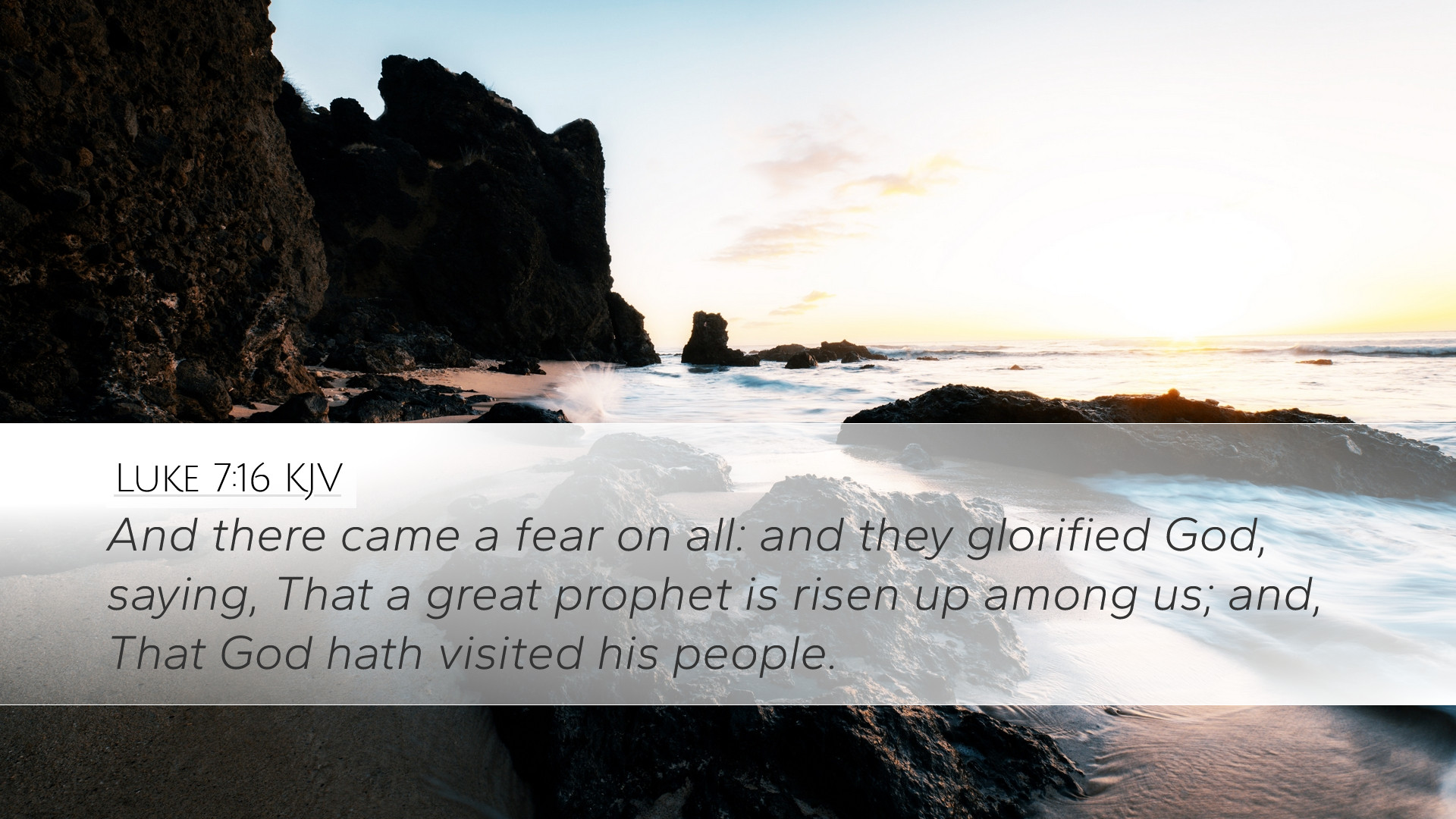Insights from Public Domain Commentaries
Historical Context
Matthew Henry: Henry emphasizes the significance of the setting—Nain, a town not widely known but significant due to this miracle. The widow's plight, having lost her only son, reflects the social and emotional burdens of that time, making the miracle extraordinarily powerful.
Albert Barnes: Barnes points out that this incident reflects the common belief in a prophet as a spokesperson for God. The people’s reaction, including their glorification of God, illustrates their recognition of divine intervention in human affairs.
Adam Clarke: Clarke elucidates that the raising of the widow's son was a demonstration of Jesus' compassion and divinity. He notes the cultural implications of a woman losing her son and the resulting social calamity, which Jesus compassionately addressed.
Theological Significance
The Nature of Fear: The reaction of fear (phobos) is noteworthy. This isn’t mere terror but can be viewed as a reverent awe that accompanies the recognition of divine authority. Henry reflects that this fear often accompanies God's works in Scripture, marking significant revelations of His power.
Glorifying God: The act of glorifying God is central to the response of the people. This serves as a reminder of human response to divine acts and highlights the importance of worship and acknowledgment of God’s sovereignty. Barnes expounds on how genuine encounters with Christ lead not to glorification of the miracle worker, but of God Himself.
Prophetic Identity of Jesus
Luke presents Jesus in a way that emphasizes His prophetic role. Matthew Henry observes that the people’s proclamation of Jesus as a great prophet connects Him to the Old Testament and the promises of God visiting His people.
Clarke further elaborates on the implications of calling Jesus a prophet, stressing that it pointed to His authority and mission. In a Jewish context, prophecies often linked to expectations of redemption resonate deeply here, providing a fulfillment of hope for the people.
The Divine Visitation
“That God hath visited his people” speaks to a profound theological truth. Albert Barnes asserts that this visitation is not merely a one-time event, but rather reflects the fulfillment of God's covenantal promises throughout history, culminating in Jesus’ ministry. This reveals that God is intimately involved in human affairs.
Matthew Henry accentuates that God’s visitation comes with power and purpose, aiming to redeem and restore the brokenness of life. This notion of visitation indicates God’s active engagement rather than passive observation.
Responses to Miracles
The people's response to the miracle sheds light on human nature. They experienced a transition from mourning to joy, which reflects a deeper spiritual truth about transformation in the presence of Christ. Adam Clarke emphasizes that while miracles can invoke fear, they also open avenues for faith and hope.
Henry remarks on the importance of this dichotomy—recognition of divine power often leads to a testimony of God's greatness, which is crucial for both personal faith and communal belief.
Application for Today
For pastors and scholars, this passage serves as a theological anchorpoint. It offers profound implications for understanding Jesus’ identity and mission. The miracle at Nain not only reveals Jesus’ dual nature as fully God and fully man but also His passionate care for the marginalized in society.
In the contemporary context, it challenges believers to respond to Jesus’ works with reverence, commitment, and glorification of God. There are calls to recognize God’s visitation in all areas of life, urging Christians to engage in acts of compassion and mercy as Jesus modeled.
Moreover, for theologians, it prompts a reflective inquiry into the nature of prophecy, the implications of divine visitation, and the call for communities to celebrate God's acts in their midst.
Conclusion
Luke 7:16 encapsulates a moment that is rich with theological significance—the fear, glory to God, recognition of Jesus as a prophet, and acknowledgment of divine visitation converge to present a holistic view of Jesus’ ministry. By examining this verse through the lens of public domain commentaries, we gain a deeper insights into both the historical and theological implications of this profound event.


